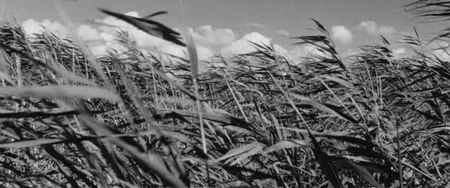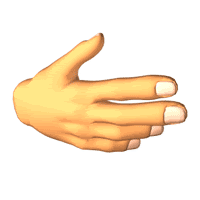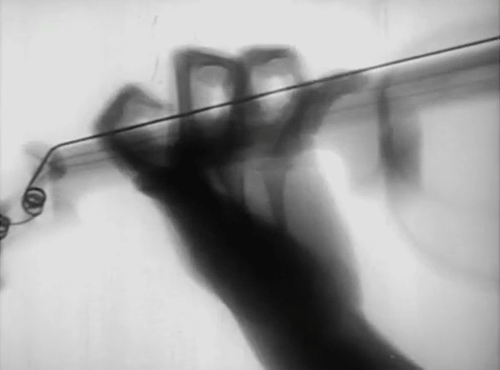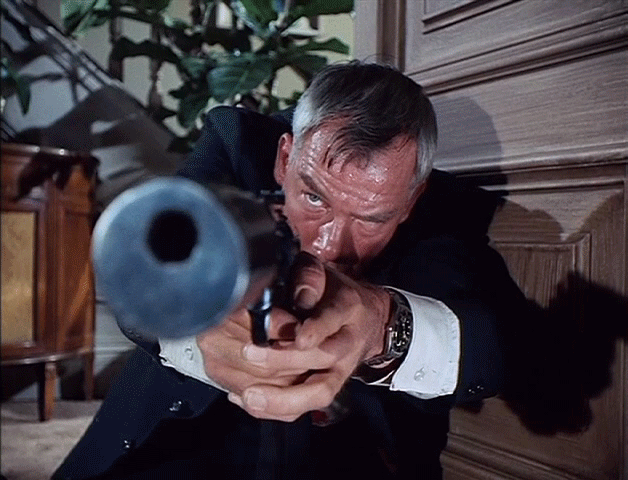
'Since the publication of his first novel, Le Méridien de Greenwich (The Greenwich Meridian, 1979), Jean Echenoz’s reputation as a writer has described an ascendant trajectory, much like that of the space shuttle he puts on stage in Nous trois (We Three, 1992). With eleven books at the Editions de Minuit, he can now lay claim to a body of work that is as distinguished and as varied as that of any living novelist in France. It should be recalled that Minuit offered a home to the New Novel in the 1950s, launching figures such as Alain Robbe-Grillet, Nathalie Sarraute, Michel Butor, Marguerite Duras, Robert Pinget, and Claude Simon into the literary ether.
'Though their theories and practices of the novel are more diverse than those of their precursors, it now seems clear that the new Minuit writers, most of whom inaugurated their careers in the 1980s (I’m thinking of people like Jean-Philippe Toussaint, Marie Redonnet, Eric Chevillard, Christian Oster, Marie NDiaye, and Christian Gailly, to name just a few), have done just as much as the New Novelists in terms of rethinking the fundamental terms of the novel as a cultural form and suggesting intriguing new paths for that form. Without a doubt moreover, Jean Echenoz has played a crucial, indeed determinative role in that dynamic.
'Piano is a French novel, a very French novel. The author won the Prix Goncourt for an earlier book and this one carries hints of Voltaire and Sartre. The publishers suggest that Piano can be read as a metaphor of life and death, heaven and hell; Dante is invoked. Daunting stuff, you might think. A thin book, it comes wrapped in heavyweight literary packaging — in France Jean Echenoz is rated alongside Beckett and Nabokov. But what lies inside this intellectual bombe surprise is a sharp, airy sorbet that slips down with great ease: an existential thriller of the sort that might once have been turned into a movie by Jean Cocteau. It’s a deadpan, elegant and wittily observed tragicomedy: posh French fun.
'In Piano, the musician protagonist Max spends the first section in a state of advanced alcoholism, to conquer stage fright, and the last two as dead, from which state he returns as "Paul" to the "urban zone" of life. A dead hero is entirely appropriate to classical subjects with Greek references. One could almost say that Max the pianist makes the transition from pathos to bathos when recycled as Paul. Others will no doubt invoke Virgil as Dante's guide through the Inferno, or even Sartre's "Hell is other people" from Huis Clos - to which, apart from the claustrophobia of the concert halls where Max performs, Piano happily bears no resemblance.
'It is perhaps a reflection of a modern inability to deal squarely with death that an afterlife so eludes our conception. Echenoz has, therefore, opted for the tradition of a public life on earth, where much is achieved despite the waste of personal experience. Max's Purgatory is something to be escaped at the earliest opportunity, even when founded on sensual fulfilment rather than denial; and Hell is the ultimate inescapable place, where disappointment is all.
'Echenoz uses dollops of interior monologue, which magnify Max's neuroses. In several instances, he becomes an intruding author, injecting playful asides, which are interesting but risky, as they are not at all germane to the plot. Even so, this device contributes garnish to an enjoyable read that stands out for its good writing and inventiveness.
'Echenoz has produced a superb and stunning body of fiction. His sense of pace is flawless. His characters wander into situations of dazzling incongruity as if the incongruous itself were the first principle of the human condition -- and upon finishing Piano, his readers, both amused and bemused, may be persuaded that such is indeed the case.'-- collaged
____
Gallery





_____
Further
'Reading Jean Echenoz'
Hallucinating Rhythm: The Parisian Dreamscape of Jean Echenoz
'The Uses of Brevity:
Valuing the “No More to Be Said” in Jean Echenoz'
'Piano' @ The Complete Review
Jean Echenoz @ goodreads
'At last - a French novel that's just the ticket'
'Anthem for Doomed Youth:” Jean Echenoz’s 1914'
'How do you read a novel in another language?'
'The “Lightweight” Gallows Humor of Jean Echenoz
'A Window Onto Comic Tedium'
'Je ne vois pas bien ma place dans les académies'
Jean Echenoz @ France Culture
'Les facéties de Jean Echenoz'
Video: 'Jean Echenoz : écrire, un état prenant'
'Jean Echenoz, auteur postmoderne?'
'Jean Echenoz: "Je ne crois pas du tout à l'inspiration, plutôt à l'obstination"'
____
Extras
Jean Echenoz, entretien, Interlignes, Dominique Antoine
Lydia Davis and Jean Echenoz read at the 92nd Street Y
Harry Mathews Le son de Jean Echenoz
Jean Echenoz vous présente son ouvrage "14"
______
Interview

Et la discrétion dont vous vous entouriez ? Vous êtes-vous senti agressé ?
Jean Echenoz: Pas agressé, mais simplement fatigué, éprouvé par la médiatisation que ce prix engendre. Je suis resté allongé deux jours entiers après pour me reposer ! Et la " fausse " biographie que j'ai fait paraître pour les communiqués de presse n'était pas destinée à dérouter les journalistes et encore moins à se moquer de qui que ce soit, même si cette histoire me suit encore quinze ans après ! On m'avait demandé d'écrire une notice autobiographique. Un piège narcissique dans lequel je ne souhaitais pas tomber : j'ai écrit quatre lignes, ne souhaitant pas exposer certaines choses de ma vie ni commenter mon travail, puis je me suis aperçu que cela n'avait aucun intérêt. Et comme je suis un écrivain de fiction, je me suis servi d'elle et d'une sorte de pudeur pour écrire quelque chose de totalement différent.
Le goût de l'écriture ?
JE: Il m'est venu très jeune, vers dix douze ans. Je ne savais pas du tout la forme qu'il prendrait, presse ou autre ; mais la littérature étant ce qui m'a toujours passionné, c'est naturellement vers elle que je suis allé... Je composais souvent des petits textes, des commencements de fiction, des poèmes comme tout le monde (que j'ai heureusement perdus ! Rires…) et j'avais ébauché un roman épistolaire. Cet apprentissage tendait in fine vers le roman, et mes perspectives et ambitions ont rencontré le besoin urgent de la concrétisation. J'ai alors appris que l'on devait retravailler les premiers jets, revenir sur ce qui vient sous la plume pour lui donner une profondeur et un relief véritable.
Des événements, rencontres ou influences déterminantes ?
JE: Je relis certains écrivains de manière fréquente, tels que Flaubert, Nabokov, Queneau, qui sont pour moi des fenêtres importantes. La rencontre déterminante : mon éditeur. Je souhaitais publier chez Minuit depuis le début.
Vous vous êtes donc immédiatement tourné vers Jérôme Lindon ?
JE: Justement non ! Minuit me semblait tellement sérieuse, rigoureuse… Je n'osais pas leur envoyer mon travail, que j'estimais presque " indigne " d'elle, je pensais que les éditeurs ne l'accepteraient jamais. Je l'ai donc envoyé à toutes les autres maisons d'édition, et ma collection de lettres de refus était telle que j'ai pensé qu'il fallait que j'aie également celle de Minuit. La seule qui n'est pas venue…
Ecrivez-vous pour vous ou pour les autres ?
JE: J'écris pour moi en tant que lecteur. J'écris ce que je souhaiterais lire, espérant que mes vœux en rejoignent d'autres similaires. Je pense que l'écrivain n'a pas de mission précise ou de message particulier à transmettre ; il doit simplement un certain respect à l'écriture elle-même, à la fiction. L'écrivain doit offrir le témoignage d'amour de la prose et de la littérature le meilleur possible, le plus vrai, le plus passionné.
Vous sentez-vous crevé, vidé après avoir terminé l'écriture d'un roman ?
JE: L'écriture est très physique : donc crevé, mais pas vidé. La dernière version d'un ouvrage est la plus fatigante mais la plus intéressante, c'est également un temps ou d'autres idées naissent, où d'autres projets se mettent en place. Une période ou l'on se place dans " l'après ", ou, personnellement, j'essaie toujours de prendre le contre-pied de ce que j'ai dit et écrit auparavant… L'occasion de " casser une mécanique " qui s'est mise en place pour ne pas se répéter. Donc jamais de vide ; plutôt soulagé, libéré et déjà dans une réalisation future !
Dans une recherche de perfection ?
JE: Evidemment, comme tout écrivain qui se respecte et respecte son lecteur, quel qu'il soit. Je ne retravaille pas mes manuscrits avec l'éditeur, à une exception près, où il m'a aidé à revenir sur la fin d'un livre. J'en ai d'abord été catastrophé et suis rentré chez moi abattu. Je me suis penché à nouveau sur la partie en question, puis finalement sur l'ensemble. L'intervention de Jérôme et Irène a fait gagner à mon travail en qualité et en cohérence ; un bel exemple de la collaboration entre écrivain et éditeur qui porte ses fruits !
Vos voyages, source d'inspiration ?
JE: Je crois surtout à l'obstination dans l'écriture, et pas tellement à l'inspiration. Je suis parti en Inde dans la perspective d'utiliser certaines notes pour l'écriture de Les grandes blondes. En rentrant, il m'a semblé que tout le voyage n'avait été qu'un prétexte à prendre des vacances et à retrouver l'Inde, mais finalement ces écrits de deux mois m'ont beaucoup servi quelques temps après. Ce que j'avais failli jeter s'est révélé précieux.
Vos romans vous conduisent sans cesse à l'étranger, dans des périples et des endroits divers… Votre goût pour ces découpages spacio-temporels ?
JE: Cela tient sans doute à mon amour du mouvement, à mon attirance pour les départs, l'exploration incessante de lieux différents. Les lieux sont des moteurs de fiction aussi importants que les personnages ; et le découpage du temps, ternaire pour le voyage (visible dans les trois parties), binaire pour les protagonistes (les allers-retours de Félix à Delahaye) de Je m'en vais, viennent lui donner un rythme particulier je crois, même s'il n'était pas évident à agencer !
__
Book
Jean Echenoz Piano
The New Press
'Max Delmarc, age fifty, is a famous concert pianist with two problems: the first is a paralyzing stage fright for which the second, alcohol, is the only treatment. In this unparalleled comedy from the Prix Goncourt–winning French novelist Jean Echenoz, we journey with Max, from the trials of his everyday life, through his untimely death, and on into the afterlife.
'After a brief stay in purgatory—part luxury hotel, part minimum security prison, under the supervision of deceased celebrities—Max is cast into an alarmingly familiar partition of hell, “the urban zone,” a dark and cloudy city much like his native Paris on an eternally bad day. Unable to play his beloved piano or stomach his needed drink, Max engages in a hapless struggle to piece his former life back together while searching in vain for the woman he once loved.
'An acclaimed bestseller with 50,000 copies sold in France, Piano is a sly, sardonic evocation of Dante and Sartre for the present day, the playful, daring masterpiece of a novelist at the top of his form.'-- The New Press
_____
Excerpts
One, slightly taller than average says nothing. Under a large, light-colored raincoat buttoned to the neck, he is wearing a black suit with a black bow tie. Small cufflinks with onyx-quartz mounts punctuate his immaculate wrists. He is, in short, very well dressed, though his pallid face and gaping eyes suggest a worried frame of mind. His white hair is brushed back. He is afraid. He is going to die a violent death in twenty-two days but, as he is yet unaware of this, that is not what he is afraid of.
*
After disembodied voices had given the countdown, the concert could begin. The conductor was fairly exasperating, full of mannered grimances, unctuous and enveloping motions, coded little signs addressed to different categories of performers, fingers on his lips and inopportune thrusts of his hips. Following his lead, the instrumentalists themselves began to act like wise guys: taking advantage of a frill in the score that allowed him to shine a little, to stand out from the masses for the space of a few measures, an oboist demonstrated extreme concentration, even overplaying it to win the right to a close-up. Thanks to several highlighted phrases allocated to them, two English horns also did their little number a moment later. And Max, who had quickly lost the scrap of stage fright that had held him that day and was even starting to feel bored, himself began to make pianist faces in turn, looking preoccupied, pulling his head deep into his shoulders or excessively arching his back, depending on the tempo; smiling at the instrument, the work, the very essence of music, himself — you have to keep interested somehow.
*
White in color and emerging from who knows where, this second figure seemed gently but firmly to admonish Yellow Bathrobe, who immediately vanished. Apparently White Silhouette then noticed Max, who watched it walk toward him, become transformed in its approach into a young woman who was the spitting image of Peggy Lee — tall, nurse’s blouse, very light hair pulled back and held with a hair tie. With the same implacable softness, she enjoined Max to go back into his room.
“You have to stay in here,” she said — moreover in Peggy Lee’s voice. “Someone will be here to see you soon.
“But,” started Max, getting no further, as the young woman immediately negated this incipient objection with a light rustllng of her fingers, deployed like a flight of birds in the air between them. When you get down to it, she did look phenomenally like Peggy Lee, the same kind of big, milk-fed blonde, with a fleshy, wide mouth, and excessive lower lip forming the permanent smile of a zealous camp counselor. More reassuring than arousing, she exuded complete wholesomeness and strict morals.
*
As nothing special is happening in this scene, we might take the time to look closely at this ticket. There's actually a lot that can be said about these tickets, about their secondary uses - toothpick, fingernail scraper, or paper cutter, guitar pick or plectrum, bookmark, crumb sweeper, conduit or straw for controlled substances, awning for a doll's house, micro-notebook, souvenir, or support for a phone number that you scribble for a girl in case of emergency - and their various fates - folded lengthwise in halves or quarters and liable to be slid under an engagement ring, signet ring, or wristwatch; folded in six or even eight in accordion fashion, ripped into confetti, peeled in a spiral like an apple, then tossed into the wastepaper-baskets of the metro system, on the floor of the system, between the tracks of the system, or even cast out of the system, in the gutter, the street, at home to play heads or tails: heads magnetic stripe, tails printed side - but perhaps this isn't the moment to go into all of that.
*
p.s. Hey. ** EmptyFrame, Hi. Well, of course it's weird, sad to read your enthusiastic comment from before the Scotland results. Urgh. It's always so hard to know/say what France thinks about anything since its name and borders don't enclose a monolith, obviously, and I don't how one would suss 'secretly pleased'. People I know here were very interested in the Scottish independence vote and supportive of the Yes side. Oh, you know, that Le Pen lurking like a shark thing is so overblown by the media outside of France, as scary as her slice of support is. It's interesting the fantasies, both pos and neg, that France inspires in the non-French. But, you know, I have this anti-generalization mindset, for better or worse. My understanding is that there are some kind of distribution deals in place for our film in the US, France, and I think in Germany, and I think the rest is a wait and see thing depend ending on how the film is received at festivals and what offers come as a result. There's a question as to whether the amount of actual, shown sex in the film, which is so much less than we had originally envisioned, will prevent it from getting a release in the UK, given the struct rules about such stuff there. We'll see. In any case, it's for cinema release, theoretically at least. Art cinemas at most, I would guess. No, the film was more clear-cut in script form, and it became much more abstract and impressionistic during its realization due to Zac's very poetic visual notions. Working with Zac on the film was a sublime, unmatchable experience, and we're already working on two more collaborations, a book and a screenplay. Hard to compare it to working with Gisele. It was similar but also very different. Love to you too, man, and hugs about the disappointing referendum results. ** Scunnard, Bjork to Blatz, ha ha. It's weird how the strictest and most basic of structures can cause hallucinations. Good question about Blatz. You've got me. I forget a lot that Blonde Redhead used to be so good. Recent stuff by them sounds bland as shit to me. The Faint! I have this huge guilty pleasure love for their song 'Agenda Suicide'. Wow, I don't think I've listened to The Residents in maybe ten, fifteen years. Curious how that holds us. My instincts gather that their stuff doesn't hold up at all and that they probably sound like a transgressive Weird Al Yankovic now or something. Right now I'm tracking down someone to organize the film's raw footage so Zac (and I to some degree) can start editing in about 3 weeks. Sad about the Scotland thing. Or at least sad from over here. ** Gregoryedwin, Hey! It's very cool thing to see you in here, man! Wowzer! Sure, ask me via email, and I promise that I will even look for it, open it, and respond swiftly, which is not something I'm normally good at. So ask away! So good to see you! ** Damien Ark, Hi, Damien! It's so weird when Blogger erases comments. It does that once in a while, and I have no idea what the problem is, and people with blogs always complain about that to the Blogger higher-ups, and it never gets fixed. Yeah, definitely, of course, and a big please about you writing something for here whenever you want and in whatever form you like. I'd be totally happy, honored, etc. Thanks! ** David Ehrenstein, Hi. Yeah, Graeff was quite the character. Thanks for the link. Everyone, if you want to dig further into Tom Graeff, Mr. Ehrenstein provided a link to the Queer History Project page on Facebook where there's stuff about him. I will tell Christophe that, and he'll be very happy, I assure you. Cool! I hope someplace has the brains to publish it. ** Tosh Berman, Hi Tosh! Aw, thanks a lot, sir. I certainly can and do say the same about your place! ** Bill, Hi, Bill. I hadn't seen that. Cool. Everyone, d.l. Bill offers to link you over to a cool thing called 'These Portraits Of Moroccan Hipsters Are More Nuanced Than They Look'. A tap on those words is recommended. I hate when chaos isn't useful. Chaos really should behave itself and use its considerable powers for good. Sorry to hear that. What are you seeing and what are you preparing? Possible to say? ** Kier, Kier! You're there and here at the same time! Nice that you're hanging with Ottar. Jazz club, terrible band, hm, yeah, let me know how terrible it was. I think 'Homme au bain' is on DVD in the US. Hold on. I'll check. Yeah, here. How did you end up spending your night? My day was pretty uninteresting to describe. I mostly wrote emails and made phone calls trying to find that person we need to do the film footage organizing job. I'm hoping to get helpful responses today. I worked some on my novel and on Gisele's new theater piece. I continued the planning for Zac's and my NYC/Iceland trip. This favorite artist of mine asked me if I would write a recommendation letter re: his application for a Guggenheim grant, and I said yes, of course. Yeah, it was just one of those mostly stay at home and do regular stuff kind of day. I'll try to be more interesting today. Oh, you bet, about the alert on your show. Everyone, and especially anyone who's in or near Oslo, Norway, d.l. Kier aka the great artist Kier Cooke Sandvik is in a super interesting sounding group exhibition called 'Unshelling and Shelling Again', and it opens tonight at a space called Diorama, and if you're incredibly lucky enough to be able to go, do so, and here is all the information you need re: getting there and when and so forth. So, you no doubt had a very, very interesting day today and night tonight, and please tell me all about it. Love from Paris and me! ** Sypha, Yeah, the Jesus as hunk painting seemed like it was everywhere at one point. Think I'll skip the Butler then. I'm sorry about the pain you're feeling about your ex-friend's further removal from you. Hugs. ** Cal Graves, Hi, Cal. I like your poems a whole lot. All of them even. They're super smart and graceful and surprising and complicated inside and weirdly, beautifully calm on the outside in this really intriguing way. Thank you, and it'll be great to get to know more of your work! Maybe you saw that the awesome Chris Dankland mentioned really liking your poems yesterday too. I can't remember much about 'Europa', but, yeah, 'El Topo' is very trippy. His film 'Holy Mountain' is too, if not even more so. Good cannibal movies ... hm, wow, I can't think of anything really great. I mean, the obvious ones like 'Cannibal Holocaust' and 'Ravenous' and 'Sweeney Todd' are cool. When I was working on my novel 'The Marbled Swarm' and researching cannibal stuff, someone recommended two cannibalism movies that he said were really gruesome but fun, and I never actually watched them. According to my notes, their titles are 'Human Pork Chop' and 'The Untold Story - Part 1&2'. Have a good day! ** _Black_Acrylic, I'm so sorry, Ben. I was really hoping. So many of us were. I hope you're doing okay. And I hope that, mere compensation though it would be, that the Cameron government ponies up with empowering stuff. Hugs. ** Steevee, Hi. Oh, cool, I look forward to both of your articles a lot! ** Delilah Hannu, Hi, Dovey! It's really lovely to see you! Thank you so much for thinking of my humble blog and speaking of Antonio's incredible importance to this place, to me, to us. I miss him and think about him all the time. Oh, that amazing video! I'm going to embed it for everyone. Everyone, Delilah Hannu is the mother of the late, extremely missed artist Antonio Urdiales, one of the most genius people I've ever known in my life and, for a long, amazing time, a regular and extremely important member of the commenting gang here. She linked us up to a great, crazy video Antonio made for this blog a few years ago called 'The Weaklings', and I'm going to embed it at the bottom of the p.s. so all of you can watch it. Thank you so much, Dovey, and I send you such great respect and love! ** Misanthrope, Hi. 'In that way', hm. Okay, if you say so, buddy, ha ha. Cool, I'll go look at the tiny little football guy running around minuscule-y as soon as I get the hell out of here. Thank you for it and for your diligence. ** Chris Dankland, Hi, Chris! Thanks a lot for reading Cal's poems and for speaking to him! Cool, yeah, that Andy Pratt album is a lost, overlooked classic, I think. His best by far. So glad you liked it. You're interviewing Alissa Nutting, very cool! Yeah, I get so stressed before I interview someone, and, like, whoa, so much so when it's someone I really admire. I mean, I had the chance to interview my god Robert Pollard for BOMB at one point, and I was so intimidated that I wound up canceling out, which I, of course, have forever regretted. In my experience, the pre-stress almost always ends up being a phantom fear based on trying to imagine and pre-determine what a one-on-one will be like, and it's never the scare-fest it seems like it would be when the interviewee is a victim of that weird, distorting combination of fandom and general self-doubts. I don't really going into interviews with a philosophy or anything. I will say that, for me, in-person interviews tend to go much, much better than phoners or interviews by email. And I think my luck there is really specific to me, and it has mostly to do with the fact that the people I interview often have a pre-set idea of what I'm going to be like based on my books and stuff, and then, of course, I'm nice and pretty un-intimidating in person, and I think that kind of surprises and confuses and relaxes them in some weird way that makes the interview/conversations go kind of smoothly and easily. That's my theory anyway. Look, you're a super-smart guy with a totally unique mind, and I swear to god if you just ask her questions that you personally are really interested to hear the answers to and avoid that thing where you construct questions based on what you think an interviewer 'should' ask her, it'll go great. And she seems really cool and nice whenever I see her presence do things in social media. Don't sweat it, really. Awesome if 'TMS' has invaded your dreams. I kind of wanted it to have the possibility of existing outside of itself and becoming a labyrinthine construction of the reader's autonomous imagination. Like, you know, a drug or something. Anyway, thank you, very cool. Let me know how the interview goes, if you don't mind. How is your stories-writing going? ** Rewritedept, Hi. Mm, maybe next week would be better. I really need to find and hire that guy, and it's not proving to be as easy as I hoped. My day wasn't boring, but, if I tried to describe it in detail, you would probably be bored. GbV split again? That's news to me. Oh, I don't know, it's all and always very fluid in that camp, so who knows? ** Hyemin K, Hi. Cold sesame noodle is the Bresson of edible substances in my book. Especially Szechuan style. It's totally okay about the post. Your own work is the infinitely more important thing. Thank you kindly for buying those books. I like 'Jerk', but I think the theatrical adaptation I did with Gisele is much better than the original text. ** Jeffrey Coleman, Hi, Jeff. I was happy to have the band camp links. The more the merrier, for sure. Thank you again a lot! ** Okay. A bit back in time, Chilly Jay Chill asked me if I had done a post on Jean Echenoz, and I realized that I hadn't, so I did, thanks to CJC. Echenoz is a big, respected deal in France, but he's a lot less known elsewhere, and he can be pretty great, so I hope you like discovering him, if you are a discoverer, or seeing the props, if you're already a fan. See you tomorrow.
ijĒŞǙŞ ҚĦŖİŞŢ aka Antonio Urdiales 'The Weaklings'








































































































































.gif)


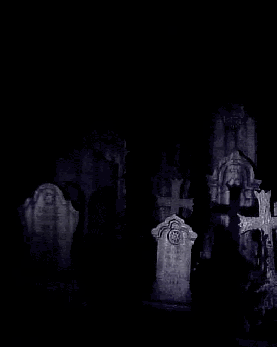































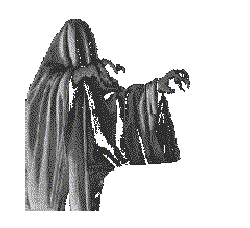



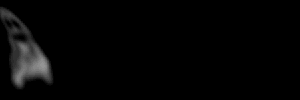

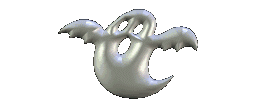






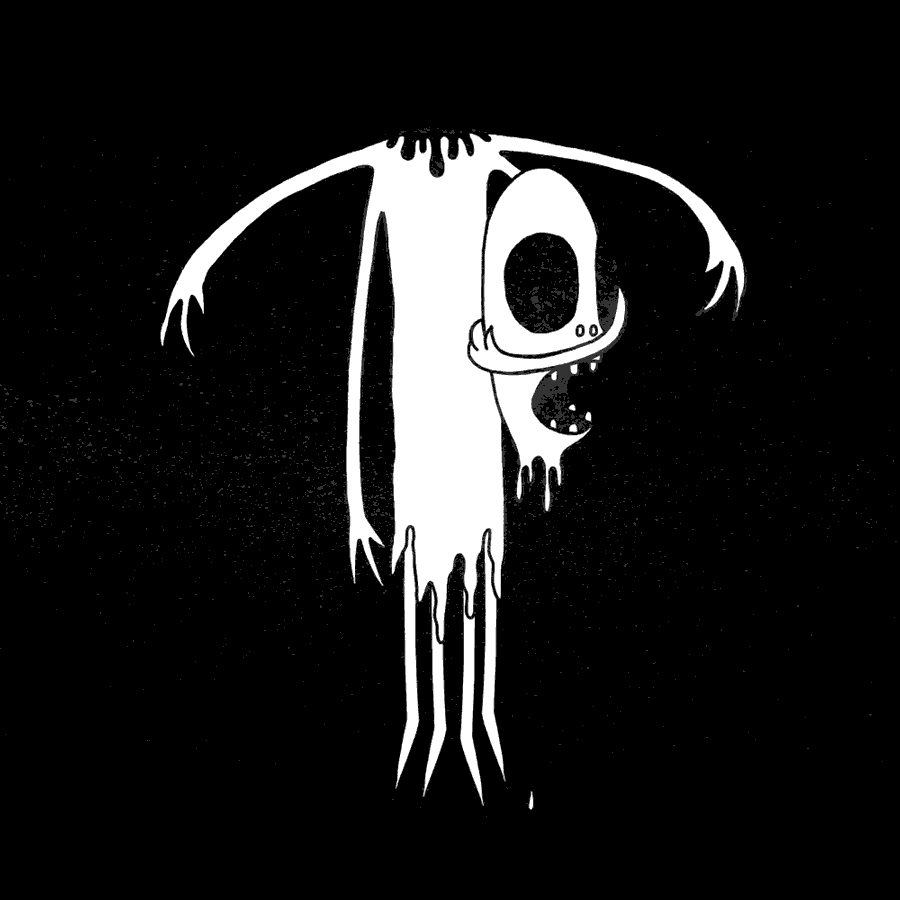

















%2B2008.jpg)


%2B2007.jpg)






































































































.jpg)


























































































_1972_avi_snapshot_00_41_41_%5B2010_07_07_03_17_56%5D.jpg)













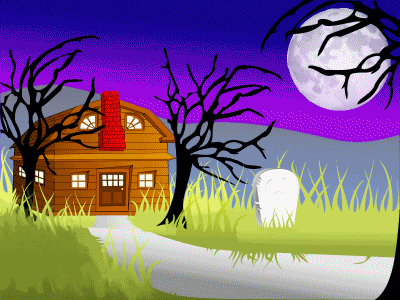
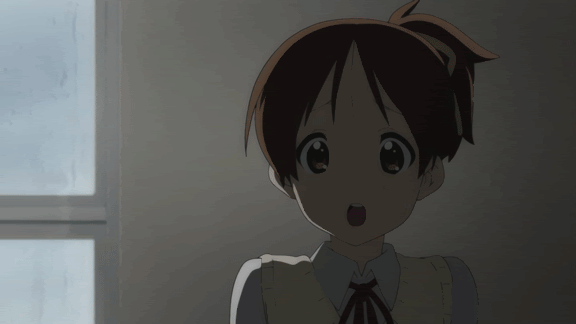








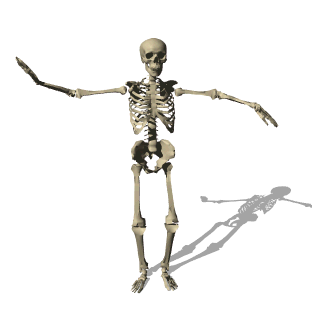




































-x-2-4M(L)-x-0.jpg)































































































































































































.jpg)










































































